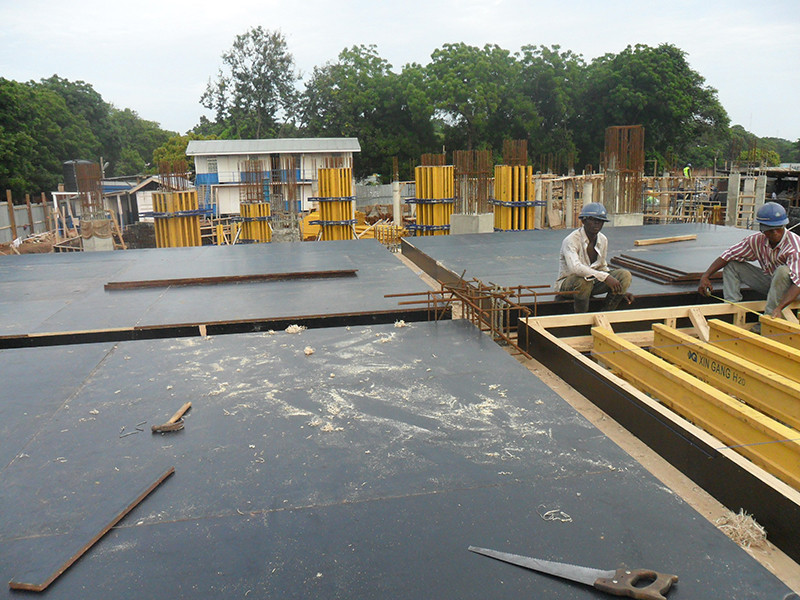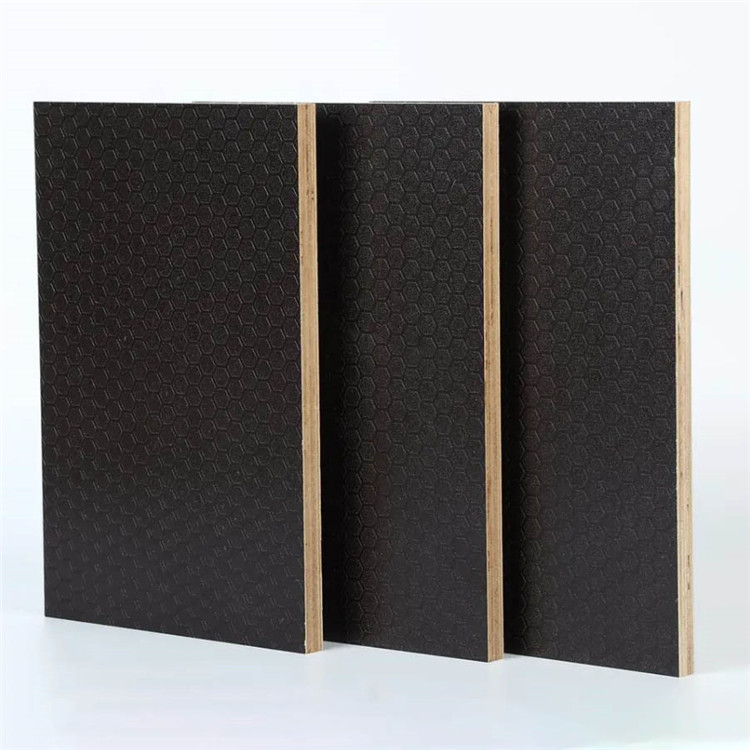Aspen Poplar, scientifically known as Populus tremuloides, is a remarkable hardwood species native to North America. Revered for its versatility, Aspen Poplar wood is a prized resource in various industries and applications, owing to its unique properties, texture, and durability. This versatile timber boasts a fine and even grain, rendering it an ideal choice for woodworking, whether for crafting elegant furniture, traditional weaponry, or sturdy construction materials. Its smooth, silvery-gray bark enhances the tree’s visual appeal in its natural habitat. Moreover, Aspen Poplar wood finds utility as an efficient source of firewood, a foundational component in plywood manufacturing, and a reliable material for railroad ties and pallets. From furnishing homes to supporting infrastructure, Aspen Poplar wood’s adaptability and strength make it an essential and enduring resource.
The texture of Aspen hardwood is characterized by its fine and even grain, which showcases a uniform, pale white to light yellow hue. This texture lends itself well to a variety of woodworking projects, making it an ideal choice for both novice and experienced craftsmen. Whether you’re crafting intricate carvings or smooth, polished surfaces, the consistent texture of Aspen Poplar allows for precision and finesse in your woodworking endeavors. Pine Veneer Plywood

The bark of Aspen Poplar trees is known for its smooth, silvery-gray appearance, marked with distinct black scars. While the bark itself may not be a widely used resource, it does contribute to the tree’s unique aesthetic appeal when standing tall in its natural habitat. This distinctive bark adds character to forests and landscapes, making Aspen Poplar trees easily recognizable, especially in their trembling leaves, which shimmer like a curtain of silver in the wind.
Aspen Poplar wood is a preferred choice for furniture makers due to its light color, fine texture, and ease of working. Its adaptability to various finishes allows artisans to create stunning pieces of furniture, from elegant dining tables and chairs to rustic cabinetry and bedroom sets. The natural beauty of Aspen Poplar wood shines through in furniture design, enhancing the visual appeal of any interior while offering durability and versatility in crafting bespoke pieces for homes and commercial spaces.
Historically, Aspen Poplar wood has been used for crafting bows, arrows, and even the shafts of spears and other traditional weapons. Its strength, flexibility, and resistance to splitting make it an excellent choice for such applications. Warriors and hunters of the past recognized its reliability, relying on Aspen Poplar wood to fashion instruments of precision and power that played pivotal roles in their pursuits, whether on the battlefield or in the hunt.
Aspen Poplar wood is an excellent source of firewood, thanks to its quick seasoning, low smoke production, and consistent burning properties. It’s a popular choice for wood-burning stoves, fireplaces, and campfires. Its reliability as a source of heat and light in countless households over generations has solidified its reputation as a dependable and efficient firewood option, particularly in regions where the trees thrive.
In the construction industry, Aspen Poplar wood is used for framing, sheathing, and interior finishing due to its strength-to-weight ratio and ease of handling. It provides structural integrity while keeping construction projects manageable. Builders and contractors value Aspen Poplar for its contribution to sturdy frameworks and dependable structural elements in residential and commercial construction, enabling safe and efficient building practices.
Aspen Poplar veneer is a key component in the production of plywood. Its consistent color and grain make it a valuable material for creating sturdy and aesthetically pleasing plywood sheets used in various applications. This plywood, with its Aspen Poplar core, offers a versatile and reliable solution for a wide range of uses, from cabinetry to flooring, meeting the demands of modern construction and design.
Aspen Poplar lumber is widely utilized in crafting boards for various purposes, including shelving, flooring, and cabinetry. Its light color allows for easy staining or painting to match any design scheme. These boards are the building blocks of interior and exterior finishes, offering both functionality and an opportunity for aesthetic customization in homes, offices, and commercial spaces alike.
Aspen Poplar’s resilience and resistance to decay make it a suitable choice for railroad cross ties, ensuring the durability and safety of railway tracks. These ties play a critical role in supporting the weight and stability of train tracks, and Aspen Poplar’s ability to withstand the harsh outdoor conditions and the immense pressure of passing trains is a testament to its strength and reliability in this essential infrastructure component.
Aspen Poplar wood is a preferred choice for manufacturing pallets due to its lightweight nature and strength. Pallets made from this wood are easy to handle and offer durability for transporting goods. Whether in the realm of logistics, warehousing, or manufacturing, Aspen Poplar pallets contribute to the efficient and safe movement of products, and their sturdiness ensures that goods reach their destinations intact.
Cants, or partially sawn logs, are often cut from Aspen Poplar trees to be further processed into various products such as lumber, veneer, and paper pulp. This utilization of Aspen Poplar showcases its role as a versatile and renewable resource that contributes to a wide range of industries, from construction to paper production, highlighting its ecological and economic importance.
Aspen Poplar wood is a practical choice for constructing fences on properties and farms. Its natural resistance to decay helps ensure long-lasting, reliable fencing. These fences not only define property boundaries but also provide security and aesthetics, enhancing the rural landscape with their enduring and weather-resistant qualities.
Wooden crates made from Aspen Poplar are commonly used for packaging and shipping delicate or valuable items. The wood’s strength and workability make it ideal for crafting custom-sized crates. From fragile antiques to fresh produce, Aspen Poplar crates protect and transport goods while showcasing the wood’s adaptability and contribution to safe and sustainable packaging solutions.
Aspen Poplar wood can be utilized for decking applications, providing a stable and attractive surface for outdoor living spaces. Its light color stays cool under the sun, making it comfortable for barefoot use. Aspen Poplar decking not only adds functionality to outdoor areas but also enhances their aesthetic appeal, creating inviting spaces for relaxation and entertainment.
Shiplap siding, known for its distinctive overlapping profile, is often crafted from Aspen Poplar wood. It enhances the visual appeal of homes and buildings while offering weather-resistant properties. Aspen Poplar shiplap siding combines practicality with timeless charm, serving as a durable and visually pleasing cladding option for a wide range of architectural styles.
Live edge siding, which preserves the natural contours of the tree, can be fashioned from Aspen Poplar wood, creating a rustic and organic look for homes and cabins. This siding embodies the beauty of nature, bringing the outdoors in and adding a unique character to interior and exterior spaces.
Aspen Poplar slabs are sought after for their unique patterns and can be used for creating stunning tabletops, countertops, and decorative pieces that showcase the tree’s natural beauty. These slabs serve as captivating focal points, inviting a sense of connection with the environment into interior design and adding a touch of elegance to any space.
In construction and architectural projects, Aspen Poplar beams are valued for their load-bearing capacity and ability to blend seamlessly into both traditional and modern designs. These beams provide the structural backbone of buildings while harmonizing with various architectural styles, demonstrating the wood’s adaptability and strength in the realm of construction and design.
Explore our Lumber Section for a more in-depth exploration of the diverse world of wood and its myriad applications. A treasure trove of information awaits your discovery, so don’t hesitate to immerse yourself and embark on your next enlightening reading journey. Enjoy your reading experience!
In conclusion, Aspen Poplar wood is a versatile and resourceful material that has played a vital role in various industries and applications. Its fine texture, durability, and adaptability have made it a favored choice for woodworking projects, construction, and a wide range of other purposes, ensuring its continued significance in the world of timber resources.
Best Wood for Smoking Meat 2024
How to Make Wood Charcoal 2024
How to Start a Firewood Business 2024
Best Firewood for Wood Ovens 2024
Firewood Types and their Heat Output 2024
Discovering your chainsaw has leaked oil can be a frustrating experience. Not only does..

Baltic Birch Plywood Owning a chainsaw means dealing with the frustration of oil leaks, which can be..